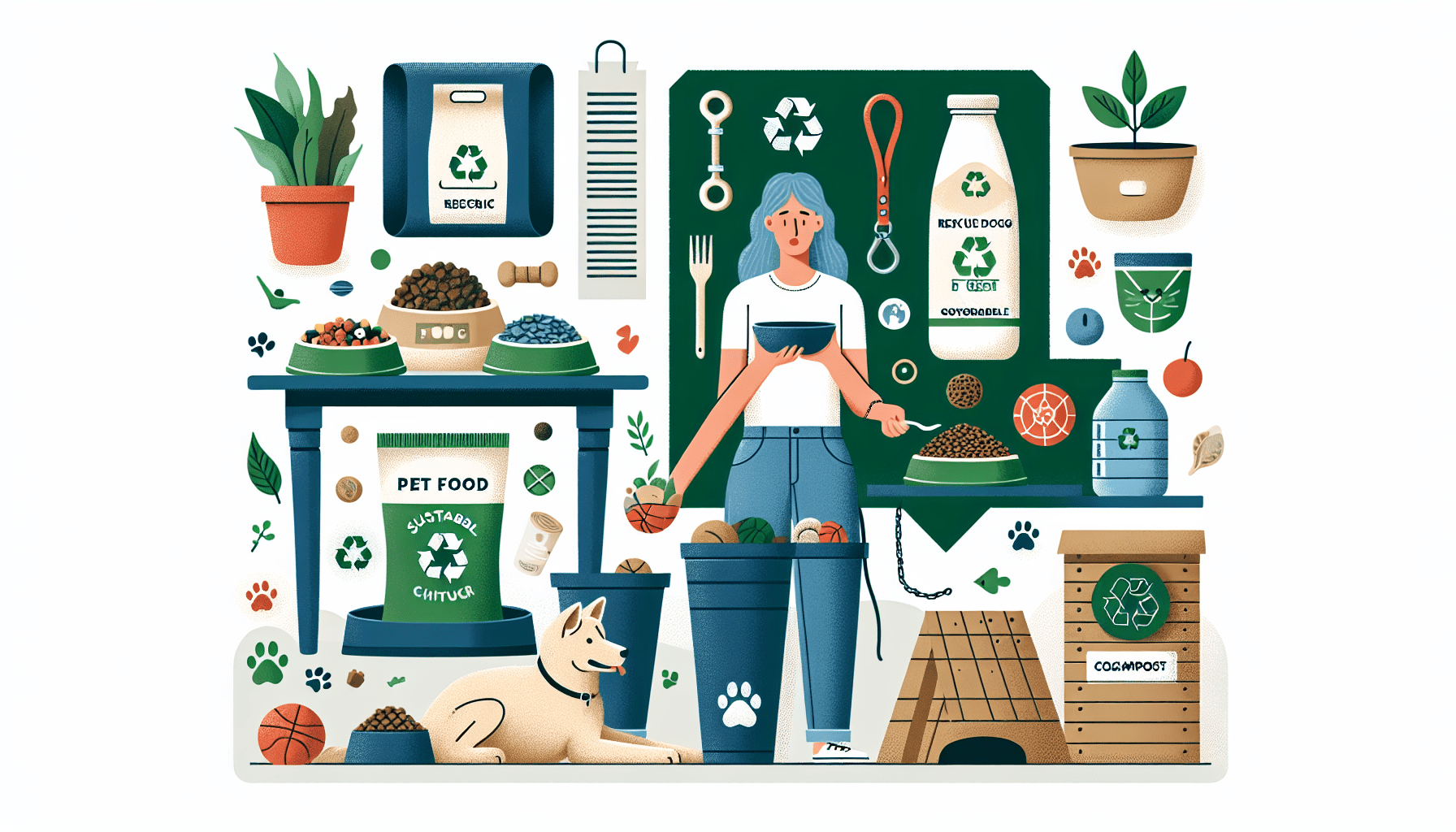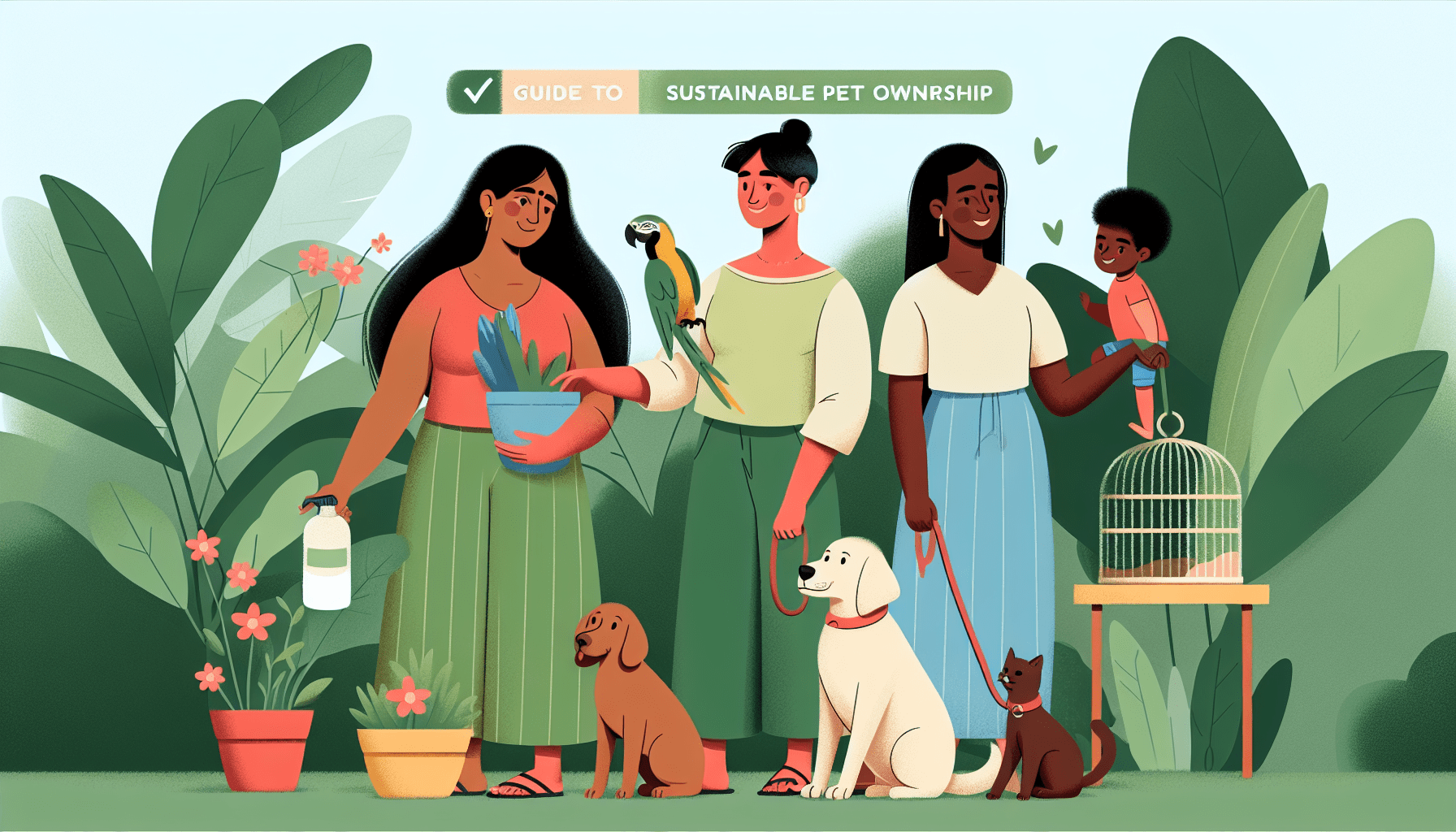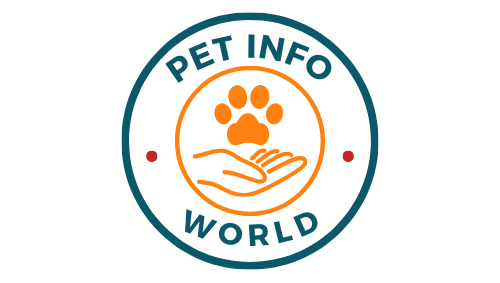Having a pet can be a wonderful and fulfilling experience, but it’s important to remember that responsible pet ownership goes beyond providing love and care for your furry friend. In this guide, we will explore the concept of sustainable pet ownership, which focuses on reducing your pet’s environmental impact and promoting their overall well-being. From eco-friendly pet products to sustainable feeding practices, this article will provide you with valuable tips and insights on how to be a conscientious pet owner while protecting the planet.
Choose the Right Pet
When it comes to bringing a pet into your life, it’s important to choose the right companion that fits your lifestyle and living situation. Researching different pet options is a crucial first step in making an informed decision. Consider factors such as the space you have available, the amount of time and attention you can dedicate to a pet, and any allergies or sensitivities you or your family members may have.
Think about the needs and care requirements of different pets. Some animals may require more exercise and mental stimulation, while others may need a specific diet or grooming routine. By considering these factors, you can ensure that you choose a pet that will thrive in your care.
Adopt Don’t Shop
When looking for a furry friend to welcome into your home, consider adopting from local animal shelters or rescue organizations. These establishments are often filled with loving pets in need of a forever home. By adopting, you not only save a life but also support the effort to reduce pet overpopulation and euthanasia.
Consider adopting older animals. Many people overlook the benefits of adopting adult or senior pets. Older animals often have a calmer temperament, are already house-trained, and require less intensive care. Plus, they bring just as much love and companionship as their younger counterparts!
Before finalizing the adoption, ask about the pet’s medical history and behavior. Understanding any existing medical conditions or behavioral issues will help you provide the appropriate care and support for your new pet.

Spay or Neuter Your Pet
Promoting responsible pet ownership includes spaying or neutering your furry friend. Not only does this help control the pet population, but it also offers numerous health benefits for your pet. Spaying females reduces the risk of uterine infections and breast tumors, while neutering males decreases the chances of testicular cancer and prostate problems.
Preventing unwanted litters through spaying or neutering can also alleviate the strain on animal shelters and reduce the number of homeless animals. By taking this responsible step, you’re making a positive impact on both your pet’s health and the well-being of animals in your community.
Provide a Balanced Diet
Ensuring your pet receives a balanced diet is essential for their overall health and well-being. Consulting with a veterinarian is crucial in determining appropriate pet food choices. Each pet has specific dietary requirements based on their age, breed, size, and any existing health conditions. A professional can guide you in choosing the right food that fulfills your pet’s nutritional needs.
Consider eco-friendly and sustainable pet food brands. These companies prioritize using natural ingredients, sustainable sourcing, and responsible manufacturing practices. By selecting these brands, you make a conscious choice to support environmentally friendly options that are healthier for your pet and the planet.
To maintain your pet’s optimal health, it’s important to avoid overfeeding. Overfeeding can lead to obesity, which can cause a range of health issues for your furry friend. By following the recommended portion sizes and feeding schedule advised by your veterinarian, you can ensure that your pet maintains a healthy weight.

Choose Eco-Friendly Products
When it comes to choosing pet products, opting for sustainable options can have a positive impact on the environment. Look for pet toys made from sustainable materials such as organic cotton, hemp, or recycled materials. These toys are not only safe for your pet but also help reduce the carbon footprint associated with the manufacturing process.
Using biodegradable poop bags is another way to make an eco-friendly choice. Plastic bags can take hundreds of years to decompose in landfills, whereas biodegradable bags break down more quickly and have a reduced environmental impact.
Avoid products that contain harmful chemicals or excessive packaging. Look for pet care items that are made from natural and non-toxic ingredients. By doing so, you not only provide a safer environment for your pet but also contribute to reducing the amount of waste that ends up in landfills.
Practice Responsible Waste Management
Cleaning up after your pet in public spaces is a simple but important part of responsible pet ownership. By picking up their waste, you help keep the community clean and prevent the spread of diseases. Always carry bags with you during walks or outings to ensure you have a convenient way to clean up after your furry friend.
When disposing of pet waste, it’s essential to do so properly. If your local regulations allow, consider composting your pet’s waste in a safe manner. Keep in mind that not all types of pet waste are suitable for composting, so consult local guidelines or a composting expert to ensure you’re doing so correctly.
Prioritize Veterinary Care
Regular check-ups and vaccinations are vital to keeping your pet healthy and happy. Schedule regular visits with a trusted veterinarian to monitor your pet’s overall well-being, detect any potential health issues early on, and keep their vaccinations up to date.
Consider alternative and holistic treatments if they align with your beliefs and preferences. Some pets may benefit from therapies like acupuncture, chiropractic care, or herbal medicine. Discuss with your veterinarian to explore these options and determine what is best for your pet.
Additionally, spay/neuter surgeries and dental care are essential components of responsible pet ownership. Spaying or neutering your pet not only prevents unwanted litters but also provides health benefits. Regular dental care, including brushing or professional cleanings, promotes good oral hygiene and reduces the risk of dental disease in your pet.
Use Sustainable and Non-Toxic Pet Care Products
When it comes to grooming your pet, choosing natural and non-toxic products is crucial. Look for shampoos, conditioners, and grooming sprays made from plant-based ingredients that are free from harsh chemicals. These products not only keep your pet looking and smelling fresh but also minimize the impact on the environment.
Avoid harmful pesticides and insecticides when treating your pet for fleas, ticks, or other pests. Opt for natural alternatives that are safe for your pet and the environment. Consult with your veterinarian for recommendations on effective and non-toxic pest control methods.
Similarly, when cleaning up pet-related messes, choose non-toxic cleaning products. Many conventional cleaning products contain chemicals that can be harmful to both your pet and the environment. Natural alternatives, such as vinegar or baking soda solutions, are effective, safe, and environmentally friendly.
Promote Mental and Physical Stimulation
Pets, just like humans, need mental and physical stimulation to thrive. Engage in regular exercise and playtime with your pet. Depending on their species and breed, pets have varying exercise requirements. Dogs may benefit from daily walks, while cats may enjoy interactive toys or play sessions. By providing regular physical activity, you help keep your pet fit, mentally stimulated, and happy.
Interactive toys and puzzles are excellent tools for keeping your pet mentally engaged. These toys challenge their problem-solving skills and provide mental stimulation, especially for highly intelligent or energetic pets. Find toys that match your pet’s abilities and interests to keep them entertained and mentally sharp.
Offer environmental enrichment to enhance your pet’s overall well-being. This can include activities such as hiding treats around the house, providing scratching posts or climbing trees for cats, or creating a designated play area for small animals. These enrichment activities stimulate your pet’s natural instincts and prevent boredom.
Reduce Your Pet’s Carbon Pawprint
Reducing your pet’s carbon pawprint is an important part of sustainable pet ownership. Opt for energy-efficient pet accessories, such as LED lighted collars or low-energy consumption water fountains. These products minimize energy consumption and help reduce your pet’s environmental impact.
Consider eco-friendly and sustainable bedding options for your pet. Look for beds made from organic or recycled materials. Many sustainable bedding options are both comfortable and durable, ensuring your pet has a cozy place to relax while reducing the carbon footprint.
Avoid unnecessary travel with your pet whenever possible. Transportation, especially by air, has a significant carbon footprint. Minimize travel unless it is necessary for your pet’s well-being or safety. When traveling, consider eco-friendly options such as public transportation or carpooling to reduce emissions.
By following these comprehensive guidelines, you can embrace sustainable pet ownership and make a positive impact on the environment. Choosing the right pet, adopting from shelters, spaying or neutering, providing a balanced diet, using eco-friendly products, practicing responsible waste management, prioritizing veterinary care, using sustainable and non-toxic pet care products, promoting mental and physical stimulation, and reducing your pet’s carbon pawprint are all essential aspects of responsible and sustainable pet ownership. Enjoy the rewarding experience of being a pet parent while also protecting the planet for generations to come.
